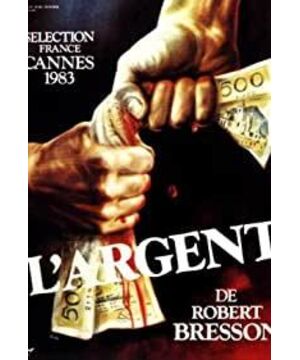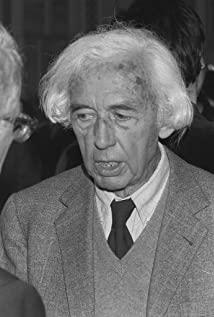A more fulfilling week, a new life for summer vacation. Learn to drive and learn the piano, memorize words, listen to listening, practice word yoga, and arrange what you need to do every day before you can finish it. Time is always rushing, but I still don't want to adjust the plan. Shaking M said it was so cool to be abused, hahaha, who made me owe it before. I have to work hard, work hard, work hard while no one sees me during the holidays. I don’t have to say. Keep playing together.
Okay, after the ranting is over, let's get to the point. A French film from the 1980s, directed by Bresson, based on Tolstoy's novel The False Coupon. I searched for the novel for a long time and couldn't find it, so I was a little disappointed. It's a film worth savoring, although my understanding of it may still be superficial.
The clues of the whole film are those brand new and tempting 500 franc counterfeit bills, the story shows how a young man who was originally upright walked step by step to the process of destruction and loss of humanity. It is obviously a tragedy, and it is pure. After watching the film, the harsh sound of the car engine and the scene where the male protagonist picks up the axe lingered for a long time. The calm narration seems to be about an ordinary neighbor next to us. The story of A, B, B, and D is truly frightening and desperate. How people and people, people and society are connected with each other through money and interests, and how the young and rigid face has changed from hope to disappointment to despair to coldness.
Let me take a breath. I thought of the question again, that is, after a person is treated maliciously/inflicted with deep harm, will this person be more inclined to do what he or she does not want to do to others, or will it change from being hurt to hurting others? , so as to achieve a balance of mind? I guess the truth is that most people unconsciously become the latter. Just like our protagonist who was played badly by other people's malice.
They were also found using counterfeit banknotes. The little blue boy who appeared at the beginning of the story had a rich mum who came forward to settle it for him, but our poor male protagonist was helpless. or their only reliance. It is clear that he is the victim of counterfeit banknotes, but there is no way to find evidence to accuse the person who cheated him. In addition, they made bad friends, and the two failed to rob a bank. It was a good thing to put themselves in prison. In prison, the youngest daughter died of illness because of poverty, and his wife could not continue to live in despair and waiting, so she left him. Therefore, the male protagonist has become a person who has been abandoned by the society and abandoned by the person he loves without any sustenance and concern. Murakami said, "As long as you love someone from the bottom of your heart, your life will be saved." Our protagonist falls into a desperate situation because he has no money, no social status, and no ability to protect himself. This is not terrible, the most terrible The only thing is that his or his hope is also deprived. If this person is still not perverted, and if he does not take revenge on society, what is he waiting for?
We can see from this story that money is not the most important thing, because life is supported by something more important than money. But only if you have money, can your life be guaranteed, you can protect yourself, protect your important people, your dignity, your rights, your rights, etc. can be maintained. No matter when, it is right to make yourself rich through proper means, otherwise you will see how cruel this cruel society is to the weak at the bottom. Never let yourself become a weakling, and never let life lose the initiative. This is the law of survival of the law of the jungle. We ourselves can't forget to sympathize with the weak, we can't lose our kindness and compassion, but we should never expect others to treat us like this.
Great film, can say a lot from different angles. For now, let's get a good night's sleep. This film warns you of your failure to work hard.
View more about L'Argent reviews







